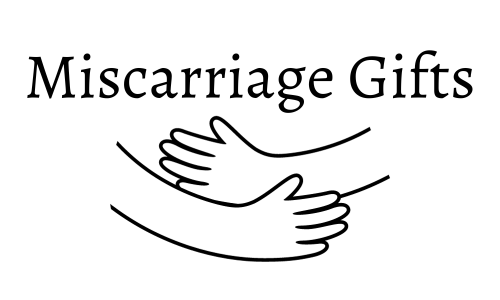When a mother experiences the devastating loss of a miscarriage, the pain she endures is often profound and all-encompassing. Friends and family naturally want to provide comfort, but many find themselves unsure of what to say or do. While words are often the first tool we reach for, they are not always necessary. In fact, sometimes the most comforting act is not speaking at all. Silence, when paired with presence, can offer a powerful form of emotional support for a grieving mother.
Why Silence Can Be More Powerful Than Words
In moments of intense grief, words can feel inadequate. No phrase or comforting sentiment can erase the loss a grieving mother feels after a miscarriage. Attempting to fill the silence with platitudes like “You’ll have another baby” or “Everything happens for a reason” may inadvertently minimize the gravity of her pain. These well-meaning comments, though intended to offer hope, can leave her feeling misunderstood or isolated in her grief.
Silence, on the other hand, offers something that words often cannot—space. Space for the mother to experience her emotions, to cry, to think, or simply to exist in her grief without feeling pressured to respond or explain. By offering your silent presence, you give her permission to feel whatever she’s feeling without interruption.
The Role of Silent Presence in Comforting a Grieving Mother
Being present without speaking communicates volumes. Sitting with a grieving mother, even in total silence, sends a message of solidarity: “I am here for you, no matter what.” Your presence assures her that she’s not alone, even when words fail to capture the depth of her loss. It also reinforces the notion that her emotions are valid and don’t need to be “fixed” or rushed.
Non-verbal cues, such as a gentle touch on the shoulder or a warm hug, can sometimes offer more comfort than any words. These simple gestures communicate empathy, care, and understanding without the risk of saying something unintentionally hurtful.
What to Do: Silent Presence
- Be there without words: Sit with her in a quiet, comfortable space. Let her take the lead on whether she wants to talk.
- Offer non-verbal support: If appropriate, a hug, holding her hand, or sitting close can provide reassurance that you’re there for her.
- Respect the silence: If she doesn’t want to talk, don’t push her. The silence is a space where she can grieve at her own pace.
What Not to Do: Overwhelming with Words
- Don’t force conversation: Asking too many questions or trying to coax her into talking about her feelings may make her feel overwhelmed or pressured.
- Avoid clichés: Phrases like “Time heals all wounds” or “Everything happens for a reason” may come off as dismissive, even if your intention is to help.
- Don’t try to “fix” her grief: Grief isn’t something to be fixed or solved. Avoid offering solutions like “Maybe you should see a therapist” unless she asks for advice.
When Silence Speaks Louder Than Words: Examples of What to Do
Imagine visiting a grieving mother after her miscarriage. She greets you at the door, clearly exhausted and emotionally drained. You sit down together, and instead of asking her how she’s feeling or what you can do to help, you simply sit beside her. After a few minutes, she begins to cry softly. Rather than offering words of comfort, you reach out and gently hold her hand. In this moment, your presence alone speaks the words she needs: “I’m here for you, I understand, and you don’t have to say anything.”
Alternatively, consider a situation where a grieving mother doesn’t want to talk about her loss at all. Perhaps she’s putting on a brave face or is struggling to process her emotions. Rather than asking direct questions about her miscarriage or how she’s coping, you could suggest spending quiet time together—going for a walk, sitting in a garden, or watching a movie in comfortable silence. This simple act of being together, without expectations, gives her the freedom to grieve in her own way.
What Not to Do: When Words Become Too Much
Now consider a different scenario: You visit a grieving mother and immediately ask, “How are you feeling?” followed by “What can I do to help?” and “Do you want to talk about it?” While these questions come from a place of concern, they may overwhelm her. If she’s not ready to discuss her emotions, these questions may feel intrusive, making her shut down emotionally. Instead of helping, the conversation has become an added burden.
Or, imagine trying to comfort her by saying, “At least it wasn’t further along,” or “You’re strong; you’ll get through this.” While these comments are meant to be encouraging, they can unintentionally minimize her grief, making her feel that her pain is being brushed aside or that she should be handling it differently.
The Importance of Silence in Healing
Silence offers grieving mothers something rare in today’s fast-paced, solution-driven world: the permission to grieve without the pressure of explanation. It tells them that it’s okay to feel sadness, anger, confusion, or any combination of emotions. It allows them to process their loss in their own time, without the well-meaning but often burdensome weight of words or advice.
Grief is a journey that each mother must walk at her own pace. Sometimes, the best way to walk alongside her is to say nothing at all. By offering a quiet, supportive presence, you provide the emotional space she needs to heal. Silence, when paired with compassion and presence, is a powerful tool that can bring comfort and understanding in the moments where words fail.
